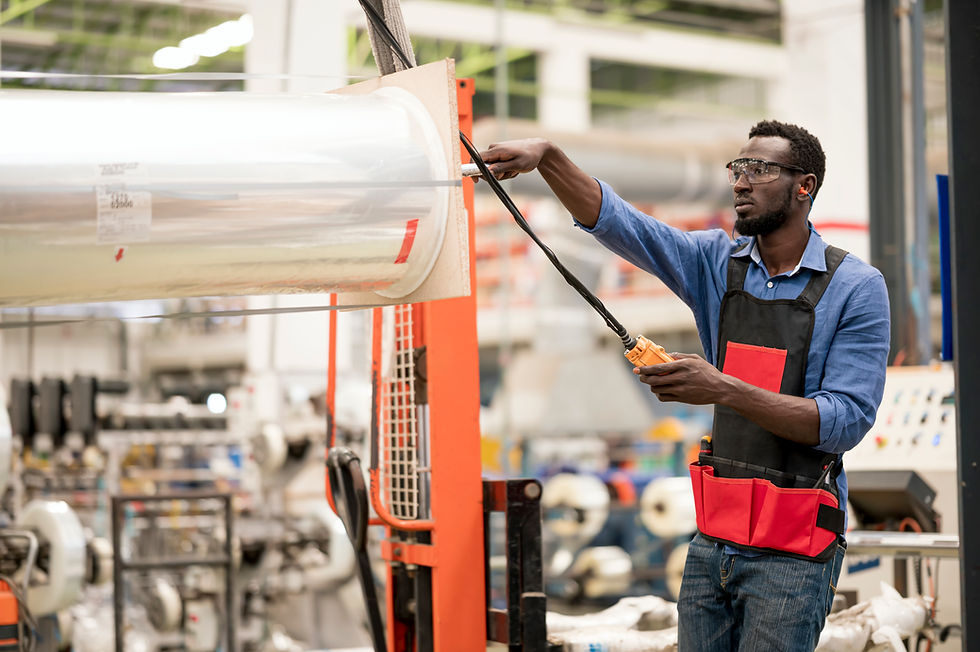Plastic pollution: Campaigners worldwide use the courts to clean up Mess – but manufacturers don't bother.
- Quit Plastic
- Jun 27, 2023
- 3 min read
Updated: Jan 5

Plastic pollution has become such a major problem that it threatens human rights. That’s the view of two UN special rapporteurs (human rights advisers) who recently issued a joint statement warning against the “overwhelming toxic tidal wave” of plastic endangering us and the environment “in a myriad of ways over its life cycle.” They called for urgent action to deal with this global crisis.
Such a call could not be timelier, as governments have achieved disappointingly little so far. Yes, most restrict single-use plastic bags or other single-use plastics. But such measures are not enough.
Even the UN treaty on plastic pollution, which has been agreed in principle and is currently being negotiated, is unlikely to produce fundamental change, at least in the short term. And there is no guarantee any new measures it leads to would have a different fate from the many existing plastic pollution laws that governments fail to implement.
Amid growing concerns over plastic pollution and a weak governmental response to it, individuals and communities have been seeking action by resorting to courts. I recently published an academic study on the global tug-of-war over plastic going on in courts in more than 30 countries.
I found many different approaches. Some argue that their governments do not implement the existing laws. For instance, a group in the Philippines has persuaded the country’s supreme court to review the government’s implementation of the solid waste management law.
Others claim that their governments do not consider the impacts of plastic pollution when allowing new factories to make plastic products. One group of Māori in New Zealand recently appealed a decision to expand a billion-bottle-per-year water plant.
Some seek compensation from plastic-producing companies for dumping waste into rivers, such as the Texas residents who won a US$50 million (£39 million) settlement after finding billions of plastic pellets in their local waterways.
Local governments are also increasingly turning to courts to claim that businesses deceptively market their plastic products as recyclable. Cases like these send a clear message to governments and businesses that individuals and communities are concerned about the impacts of plastic pollution and want more decisive action to stop it.
But at the same time, all these cases are only one part of the picture. Increasing restrictions on plastic products also result in claims brought by businesses that oppose such measures, including plastic product producers, supermarkets, and restaurants, and ask the courts to quash them.
Cases where businesses argue that restrictions on plastic products cause economic loss or are scientifically unsubstantiated are prevalent worldwide.
Businesses also regularly challenge provinces or cities that adopt additional restrictions to the ones imposed by national authorities. Such cases send the message that our society is still massively dependent on plastic products, and so measures to address plastic pollution need to be systemic.
The role of courts in tackling plastic pollution
The courts’ involvement directly affects any attempts to tackle this global crisis and for more general action on environmental and health protection. For example, businesses might be able to persuade a court to declare local anti-plastic pollution measures invalid.
This happened in Mexico recently when the nation’s supreme court ruled that the state of Oaxaca's ban on single-use plastics was unconstitutional. The success of such cases can prompt other businesses to challenge local environmental and health protection measures.
On the other hand, if a court upholds such measures, other local governments may decide to follow their neighbours' example and introduce such measures as well. If anti-plastic pollution measures already exist, they can be used to persuade the courts that further action should be taken.
Similarly, by holding businesses accountable for pollution resulting from various stages of the Plastic life cycle, courts help protect vulnerable individuals and communities from multiple human rights violations caused by plastic pollution.
No single country has a comprehensive response to plastic pollution. However, many are gradually tightening up measures on single-use plastics, moving the world closer to a thorough regulatory reaction to this crisis.
Courts will undoubtedly continue to play an important role in this process. Those concerned about plastic pollution will continue pressing for tighter regulation, while those who oppose regulation will have more restrictions to challenge.




Comments